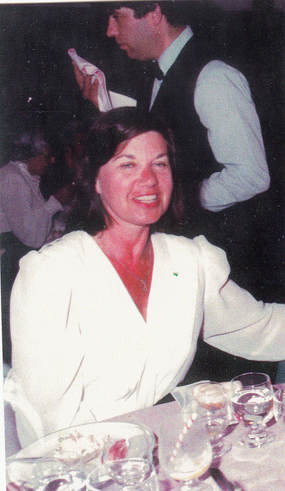 Sherrill on the NEPTUNE
Sherrill on the NEPTUNE "Why don't the three of us do this?" Sherrill handed me a clipping from her travel files.
Her idea was to explore the Greek islands together, along with part of historic mainland Greece, plus Istanbul and ancient Ephesus.
Remember flights that were comfortable, no matter how long? Maybe you weren't around in those almost mythical times, when seats were spacious enough, good meals and all beverages were included, and airlines competed to give the best service, but that's what we got from TWA to and from Athens, no upgrade needed. It was the Athens airport that needed upgrading, but we didn't linger there.
The port of Piraeus may not have been exactly as we saw it in the movie Never on Sunday in our college days, but it wasn't hard to imagine Melina Mercouri and her pals cavorting around the docks in their sling-back high heels. The ship waiting for us, however, was a surprise. It was supposed to be the French-built Renaissance, but we got a smaller, older ship that had been given a name change to Neptune. At least, as a good will gesture from the Epirotiki Line, the shore excursions would be free.
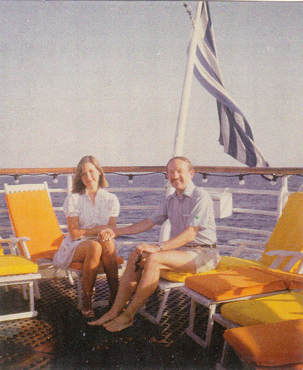 Simone & Bruce on the NEPTUNE
Simone & Bruce on the NEPTUNE "Unusual weather," the crew told us, but maybe they always said that.
Anchored in the choppy waters offshore, we had a perfect view of Hydra's crescent-shaped harbor fringed with white buildings under orange tile roofs. We were eager to explore the island, but even the sturdiest crewmen had to struggle to get some of the passengers, their arms, legs, and torsos moving as if disconnected, into the tenders without losing them to the waves. Eventually, it was our turn. The island was beautiful, alright, and no cars or motorized vehicles were allowed, only horses and donkeys. Mostly, I remember the colors: green and blue and white and orange, with red bougainvillea and the yellow of lemon trees. Mykonos the next day also was beautiful: whitewashed stone cottages, tavernas, and churches, and the beaches for which the island was famous. Somebody seemed determined to make us relax, whether we wanted to, or not.
Delos was more exciting, at least to us. One of the tenders carried us to this tiny island of the gods, a dry outcropping that couldn't permanently support a human population, but that had been home for more than one religion, including Gaia, the Great Goddess who reigned supreme before male gods were invented. Sherrill and Simone de Beauvoir, after whom she named our daughter, no doubt would have agreed that the world was no better off after switching to male deities. Later, Delos was claimed as the birthplace of twin gods Apollo and Artemis.
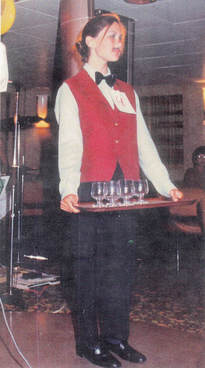 Simone as waiter at NEPTUNE costume party
Simone as waiter at NEPTUNE costume party * * *
"They only had the clothes they were wearing," one of the other passengers told us.
A couple on their honeymoon had arrived in Greece without their luggage, which seemed to be on another continent, but nobody was sure which one. Other passengers were rallying to help them, loaning them whatever they needed to get by. At midnight, the Neptune entered the narrow passage of the Dardanelles, on the way to Istanbul, where the newlyweds planned to wander through the great bazaar and add to their wardrobe—bargaining for everything, of course.
| In the morning, the city's spiky minarets and dome-topped mosques appeared against the gray sky. Nothing had prepared us for the emotion we felt actually being in Istanbul and walking on its streets. The beauty of the ancient hills woven together with the busy, churning waterways and channels from the sea of Marmara to the Bosporus and the Golden Horn instantly grabbed us. Everywhere we looked, we discovered reminders of past cultures that flourished here: this square was the shape of a Roman race course, the ceiling of that underground cistern was supported by a forest of mismatched columns, that massive mosque once was the largest church in Christendom, and that sprawling waterfront palace once housed the world's largest harem. People we passed were dressed in both traditional Arab clothing and western styles, some women completely covered, but others not. We discovered the delicious variety of mezze and seafood that was only the beginning of Turkish cuisine. This first visit also began an ongoing fascination with the Middle East and its people. Sherrill and I would return to Turkey and explore many of the other countries of this part of the world. Without exception, we found the people welcoming and eager to help us understand their countries. | Why did the Middle East resonate so much with us? We had no idea, but it did. And as the years brought us back, this city stretching from one continent to another became one of our favorites. After three visits, we realized that Istanbul was a city that we'd never exhaust. Less than year before Sherrill died, we were talking about going back some day. A Utah relative once asked me, "Why do you go to those places?" If he could even ask that question, I knew that he'd never understand my answer. To be continued... |
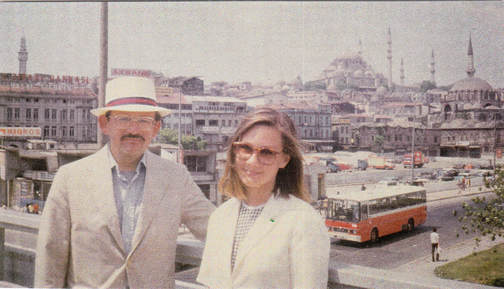
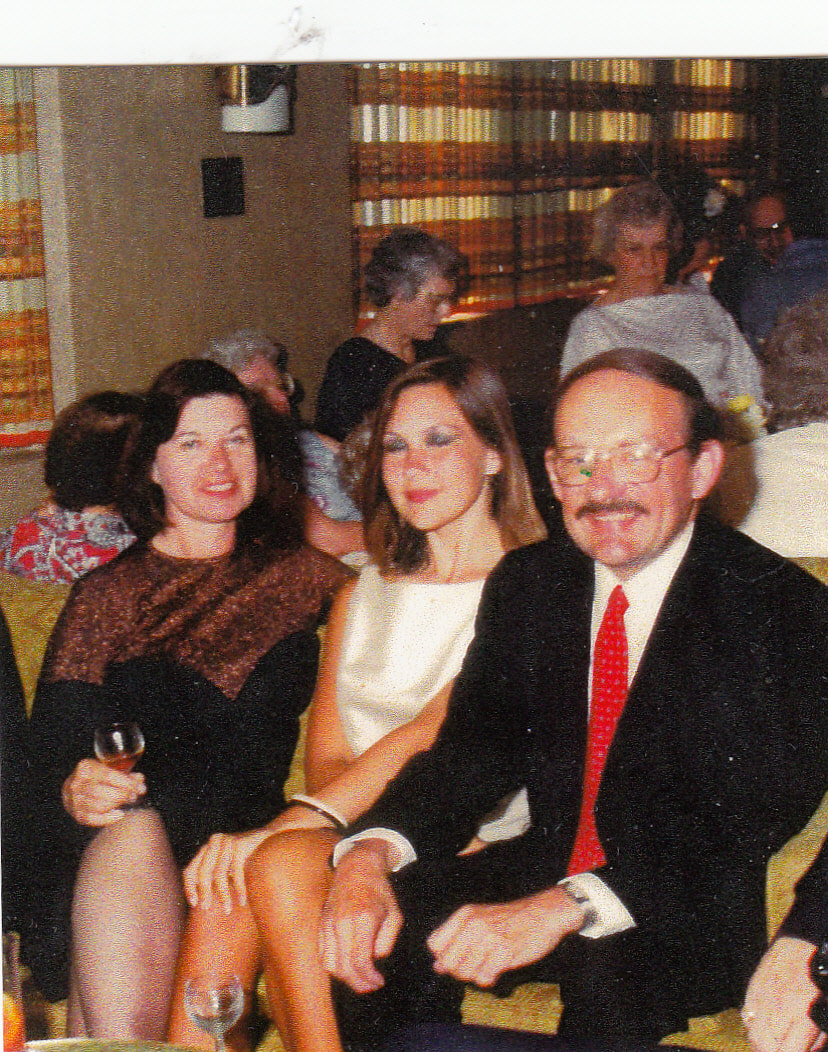
 RSS Feed
RSS Feed